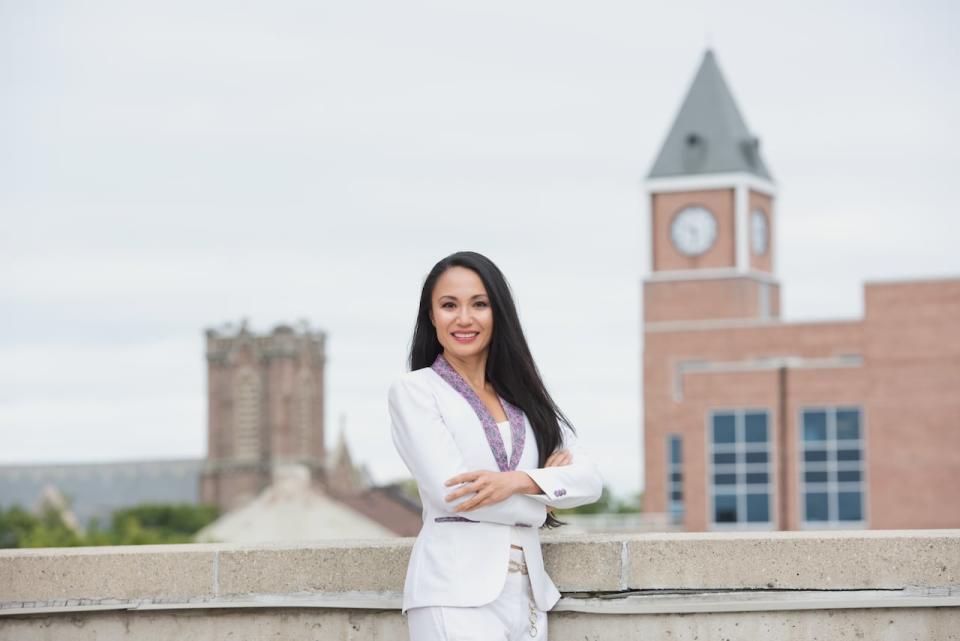Brampton to relaunch rental licensing pilot abruptly cancelled after landlord backlash

Brampton is relaunching a pilot program aimed at curbing illegal lodging — abruptly paused less than a month after it began due to backlash from landlords — and residents had a chance to weigh in at a town hall meeting Thursday evening.
Initially launched on Jan. 1 and resuming next month, the two-year pilot would require landlords to register with the city before renting out four or fewer units. The pilot was paused on Jan. 25 because of "redundancy in paperwork," like having to resubmit electrical and HVAC certification, Coun. Rowena Santos said.
Santos says the town hall was meant help the pilot's task force to streamline the application process, but there will be no changes to the $300 annual fee for the licence, which will be waived for applications submitted before June 30.
The pilot was introduced to address illegal dwellings as well as thousands of complaints about "issues related to garbage, rodents, too many cars in the driveway, unkept property standards, and even more importantly, health and safety of the tenants with 15 to 20 people living there," Santos said.
At a council meeting on Jan. 31, Mayor Patrick Brown said the city may have more than 100,000 people living in illegal units. City staff told CBC Toronto only 29 landlords had registered before the pilot was paused.

Coun. Rowena Santos, who is also part of the pilot's task force says the relaunch will help the city to 'crack down on these illegal units and hold landlords accountable.' (Submitted by Rowena Santos)
Dozens of landlords who were against the program attended that meeting.
Baljit Singh Sandhu was one of them.
"You'll give us all the fines, not the tenants. If we tell you we need to evict a tenant, you have no law for that," Sandhu said. "Why are landlords responsible for the conduct of their tenants?"
Concerns over LTB delays
After the initial launch, the city received complaints from landlords who said their tenants had illegally subletted their properties or hadn't followed city rules, Coun. Dennis Keenan told CBC Toronto after the pause.
Due to delays at the Landlord and Tenant Board, many landlords' complaints haven't been heard and some fear they will be penalized if they enrol in the program, he said.
During the Jan. 31 meeting, the city council voted to send a letter to the province to deal with the LTB backlog, with Brown calling the board "broken."
"Fix the Landlord and Tenant Board, it's a no brainer. Then we can fix the problem of overcrowded rental units," he said.
In his Feb. 16 letter to the province, Brown wrote: "This protracted delay is causing considerable distress and hardship to both landlords and tenants, undermining the fundamental principles of fairness and justice in our housing system."
In November, the LTB said it had made improvements to its systems since the province's ombudsman published a scathing investigation on dysfunction at the board in May.
Those improvements included moving to a digital-first system, hiring more adjudicators and reducing wait times.
In a statement to CBC Toronto, the LTB said the "active case count continues to be higher than ideal despite service improvements," citing a 31 per cent increase in the number of applications received in 2023, to approximately 84,000 new applications.
"This is among the highest number of applications that the LTB has received in any given year," the statement said.
"The backlog would have been substantially reduced," without the record high increase in complaints, the spokesperson said, because the LTB resolved 45 per cent more cases last year than 2022.
Santos says sending a letter to the province is all the city could do.
"We do not manage the relationship between the landlord and tenant, that's not our jurisdiction," she said, "We can only deal with the property itself and dealing with the health, safety and property standards of the property through the property owner."

